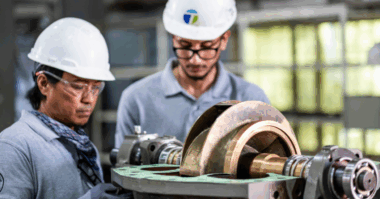Wireless gas devices in the process industry are becoming more popular.
Applications that involve Health, Safety, and Environment (HSE) concerns, like gas detection, have understandably lagged. Concerns about the security of wireless protocols, reliability of batteries, and limitations on measurement techniques have limited the use of battery-operated devices in these situations. There have been advancements in wireless mesh platforms, battery technology, and new capabilities in core technologies for gas detection in the last several years.
Now applications like wireless gas detection are feasible for reliable long-term, fixed installations, with minimal operating costs. This provides operators more options to increase gas detection coverage, enhancing plant safety. Chris Frail has had the opportunity to speak with various customers and present at a few conferences to share applications where customers are making use of the wireless gas detectors. The common need from these customers was to expand coverage and to reduce the number of people in the field for ensuring safety. They needed solutions that were easy to scale with minimal impact on budgets.
Chris Frail has written in the past about how technologies have enabled battery-operated detectors.
WirelessHART provides industry support mesh protocol everyone can plug into, and new sensors have achieved equivalent performance as traditional sensors while operating at a low power level.
Batteries tend to get lost in the conversation. 25 years ago, the Lithium-Ion battery was considered a future technology with the promise of a high power density, but a huge risk due to the volatility of lithium when exposed to air. Now lithium batteries, in their various forms, are the backbone of several industries, from handheld electronics to the automotive industry. For instrumentation, the focus has been on long-life, non-rechargeable batteries. This is what powers the Vanguard gas detector. This has allowed these detectors to be installed in locations such as unmanned terminals, remote well pads, and isolated storage tanks.
If you would like to learn more about these applications, please find UE Controls’ webinar on how wireless detectors are improving plant safety.
 About the Author:
About the Author:
Chris Frail, Gas Detection Product Manager
Chris has more than 20 years of experience in engineering, marketing, and business management.
Email: CFrail@ueonline.com




